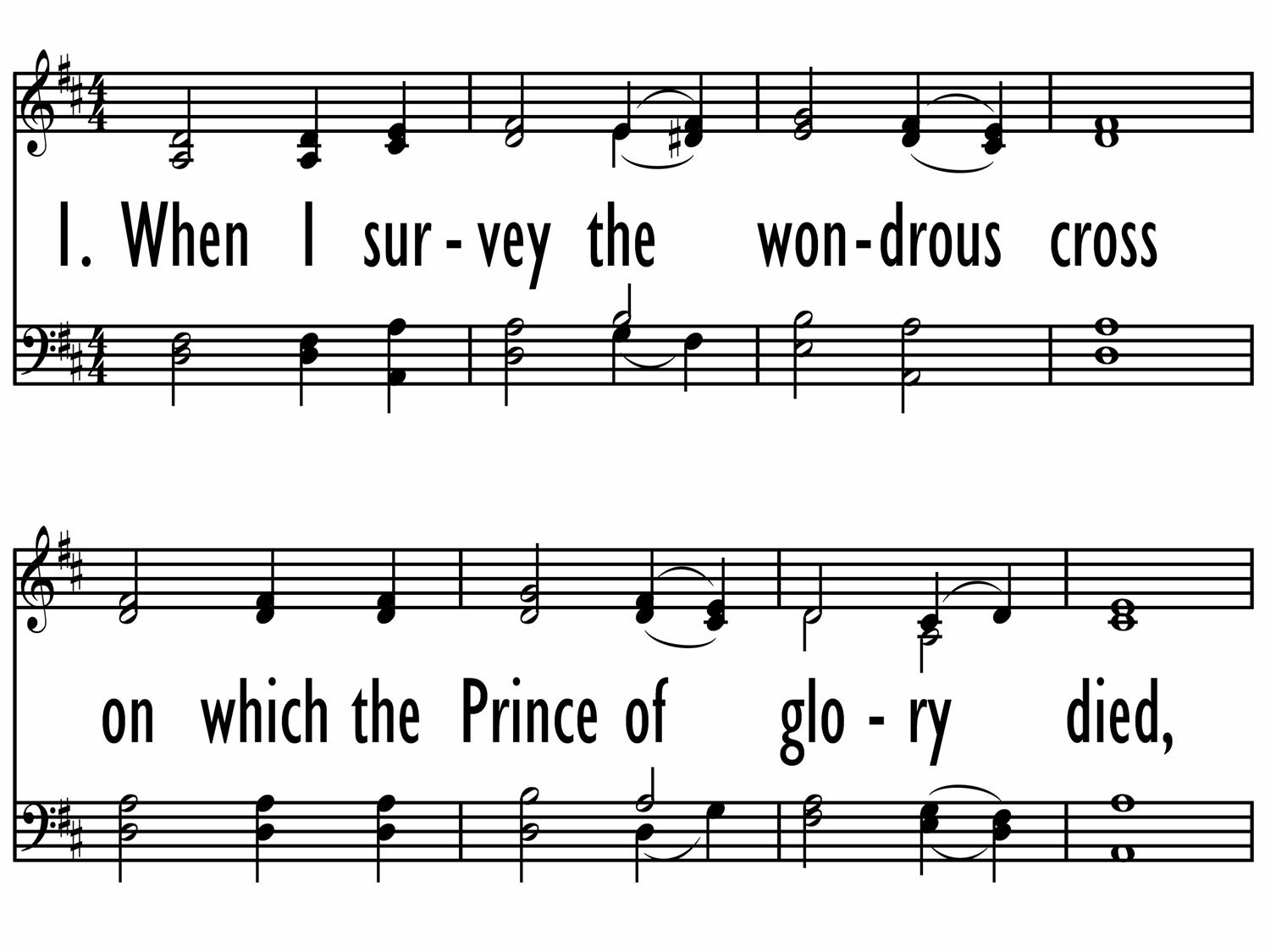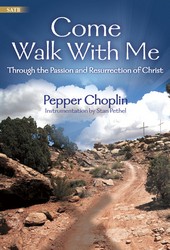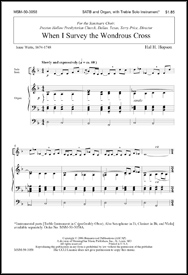- |
User Links
When I Survey the Wondrous Cross
Hymn Information
- First Line
- When I survey the wondrous cross
- Author
- Isaac Watts (1707)
- Tune Name
- HAMBURG
- Composer
- Lowell Mason (1824)
- Topic
- Boasting · Church Year: Good Friday · The Cross · Discipleship · Jesus Christ: Blood of · Jesus Christ: Confidence in · Jesus Christ: Death · Jesus Christ: Suffering · Love: Christ's Love for Us
Copyright Information
- Text Copyright
- Public Domain
- Tune Copyright
- Public Domain
- Reprint/Projection Information
- Words and Music: The Words and Music are in the Public Domain; you do not need permission to project or reprint the Words and Music.
Full Text
Scripture References
Thematically related:
- st. 1 =
- st. 2 =
- st. 3 =
- st. 4 =
Further Reflections on Scripture References
The text arose out of Watts' meditation on Galatians 6:14: "May I never boast except in the cross of our Lord Jesus Christ. . . ." Originally in five stanzas (the fourth is commonly omitted), the text was subtitled "Crucifixion to the World, by the Cross of Christ."
The text is a meditation on Christ's atoning death: at the cross God's love is revealed, to each believer, requiring total commitment to Christ-"my soul, my life, my all!" Watts’ profound and awe-inspiring words provide an excellent example of how a hymn text by fine writer can pack a great amount of systematic theology into a few memorable lines.
Confessions and Statements of Faith References
Further Reflections on Confessions and Statements of Faith References
This song reflects the narrative of the suffering and death of Christ on Calvary, events whose significance and purpose is deepened by the confessions of the church. Heidelberg Catechism, Lord’s Days 15-16, Questions and Answers 37-44 explain the significance of each step of his suffering. Question and Answer 40 testifies that Christ had to suffer death “because God’s justice and truth require it; nothing else could pay for our sins except the death of the son of God.”
The Belgic Confession, Article 20 professes that “God made known his justice toward his Son…poured out his goodness and mercy on us…giving to us his Son to die, by a most perfect love, and raising him to life for our justification, in order that by him we might have immortality and eternal life.”
Consider also the testimony of Belgic Confession, Article 21: “He endured all this for the forgiveness of our sins.”
When I Survey the Wondrous Cross
Introductory/Framing Text
Call to Worship
Words of Praise
Assurance
Blessing/Benediction
Additional Prayers
When I Survey the Wondrous Cross
Tune Information
- Name
- HAMBURG
- Key
- D Major
- Meter
- 8.8.8.8


 My Starred Hymns
My Starred Hymns






